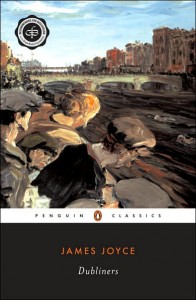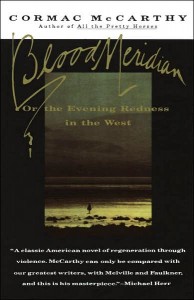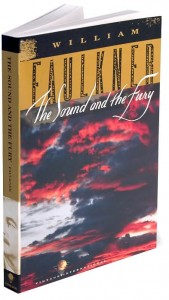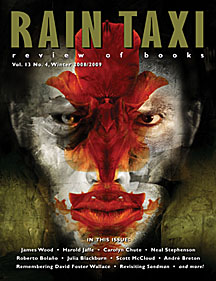 The pleasures of a book review can be as rich and varied as a book itself. A well-written review–such as the New York Review of Books or the Washington Post‘s now online-only Book World–presents the challenge to rise to the occasion of selecting, out of numerous options, which books will earn your time. A good reviewer helps winnow an abundance of new books being published every month. Fine criticism can contextualize a work, challenge the reader’s initial impressions, or recommend an unread work to his attention. By devoting pages to writers new and familiar, and thus introducing the reader to a wide range of authors, periods and genres, the humble book review whets the appetite to read.
The pleasures of a book review can be as rich and varied as a book itself. A well-written review–such as the New York Review of Books or the Washington Post‘s now online-only Book World–presents the challenge to rise to the occasion of selecting, out of numerous options, which books will earn your time. A good reviewer helps winnow an abundance of new books being published every month. Fine criticism can contextualize a work, challenge the reader’s initial impressions, or recommend an unread work to his attention. By devoting pages to writers new and familiar, and thus introducing the reader to a wide range of authors, periods and genres, the humble book review whets the appetite to read.
Nevertheless, over the past decade, newspaper book sections have faced, and continue to face, serious danger of extinction. The stakes are high. Criticism – the ability to examine culture, form and communicate judgment – plays a vital role in the formation of civilization. Society’s gadflies set the pace for political and social change; the book review is an inheritor of that tradition. However, the widening public square – primarily via the Internet – has given rise to a sea of armchair critics, who now have a platform.
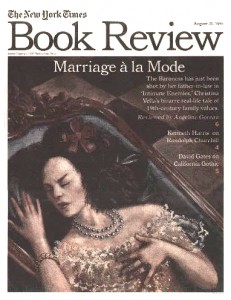 Michael Anderson, an editor at the New York Times Book Review for seventeen years, writes:
Michael Anderson, an editor at the New York Times Book Review for seventeen years, writes:
The profusion of new media has promoted everyone as his own critic. That one’s views are promulgated does not entail that said views have any weight or worth. What judgments are worthy (indeed, what should properly be labeled ‘judgment’) is itself part of the conversation that creates civilization. That also is why popularity per se does not measure worth.
A lone blogger may proclaim, say, the death of linear narrative, but criticism, moreover a community of critics, illuminates the current moment with some perspective. Anderson again: “The role of the critic is best summarized by the Australian critic Clive James, who points out that culture requires only works of art, but civilization requires criticism. The appreciation of any aesthetic endeavor requires but an audience; the creation of shared values requires discussion.” Both book reviews and criticism facilitate that dialogue within a larger community.
A society that ceases to value criticism will ultimately cease to understand its own culture. Stranded in the silo of individual taste, one would lose the idea that there are, objectively, great works of fiction – there would only be personal favorites. A lone reader going it alone (remove every book you’ve ever read on recommendation, every work assigned in a class, every book review that has piqued your interest) would face choice as far as the eye could see, with no measure of relative worth.
The startling reality: in 2007, in the U. S. alone, 276,649 new titles hit the market. Even with a vigilant critical community, thousands of very fine books have nearly fallen out of print, and would have, had not some individual championed their cause. In this number are: James Joyce’s Dubliners (rejected more than a dozen times by publishers), Cormac McCarthy’s Blood Meridian (elevated after a lackluster initial publication by Harold Bloom, among others), and William Faulkner’s The Sound and the Fury (critically praised, but sold poorly, which made As I Lay Dying Faulkner’s last-ditch effort to earn a living as a writer).
The task of sifting through the many thousands of books published every week, let alone those submitted for publication, would fall heavily upon the individual reader. That is why professionals devote entire careers to that sifting: it’s a full-time job. Now more than ever, with the prodigious amount of information that fills both work and private life, the role of the book review as an aid to the individual reader is paramount. The view that one needs only the self to navigate culture misses the importance of expertise, not just on the books page, but also every other arena. To form taste, one relies upon personal like or dislike, but to understand more fully and deeply the context of beloved art – be it a novel or a Brahms concerto – requires the humility to seek expert opinion.
In spite of the need for book reviews, and the valuable entry point they provide to literature, their survival in print is precarious. Across the country, book reviews are disappearing at an alarming rate. In 2007, the Los Angeles Times eliminated its stand-alone book review section, a move lamented by mystery novelist Michael Connelly as detrimental to the survival of both books and newspapers: “If you foster books, you foster reading. If you foster reading, you foster newspapers. That loss-leader ends up helping you build and keep your base.” In October 2008, the Chicago Tribune combined its books section with more general media coverage. Two months later the Tribune Co. filed for bankruptcy. One of the few freestanding sections then remaining – the Washington Post’s Book World – ended this January, with coverage now split between the Opinion and Arts & Style sections. Already, wire services and content syndicated across multiple papers homogenize coverage where the individual, regional voice once reigned.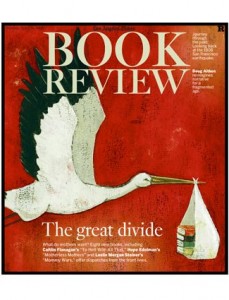
This loss of diversity, fewer voices and more standardized perspectives in newspapers, has been exacerbated by competition from the Internet. In the early 20th century big cities had as many as a dozen competing daily papers. Consolidation of these many voices into mastheads so recognizable the city is hardly needed – Chronicle, Tribune, Journal, Post, Times – has produced some benefits, such as consistency of product, and, for a long time, incredible profitability. However, within a few short years the Internet has imperiled the bottom line of newspapers. As advertising revenues disappear, subscribers vanish and media becomes ever more celebrity-driven, newspapers have tossed whatever extra baggage they can off the ship. This, unfortunately, has included book reviews. (Indeed, any section perceived to have low financial return is in danger.)
Whether the book review is a loss leader, or whether newspaper are hollowing themselves out in an effort to mimic the Internet that will ultimately alienate their readership, remains to be seen. Regardless, the service of a comprehensive book review can no longer be relied upon from the local paper, even if you happen to live in a major city.
Increasingly readers are turning on their computers for literary insight. From the web version of a newspaper’s review or one of the many sites that have sprung up over the recent past, a book review can easily be found on the Internet. One troubling aspect of a shift from paper to screen: the loss of a diverse readership. Whereas a newspaper has incidental discoveries as one leafs through the sections – so that a sports fanatic might read about the latest opera diva or a foodie might stumble upon a business section piece about vineyards – an online format (like Fiction Writers Review) devoted specifically to book reviews is unlikely to attract the golf fan, economist or chef – unless she happens to also be an avid reader.
And in the widening options for literary feedback online, how can one judge the merit of a particular website? One of the cultural needs addressed by book reviews – the sifting of a large number of books – becomes an issue again as the individual must evaluate one site over another.
Online review publications will gain reputations over time, and some (such as Jessa Crispin’s Bookslut and Dan Wickett’s Emerging Writers Network) already have–but many have appeared only in the last few years.
As online readership increases, it helps to clarify the role of various outlets for book knowledge. The difference between a literary blog and a published review (in print or online) is often, quite simply, an editor. Some rare personal musings rise to the level of great writing, but a professional reviewer for a paper, online journal, or magazine is responsible to an editor, who is responsible to the publisher, and ultimately to the stakeholders. The editorial structure of a publication is designed to assure a high-quality final product–even if this is not always the result. An editor will shape a writer’s pieces, guide and develop his or her voice, and foster professionalism.
Oscar Villalon, former books editor of the San Francisco Chronicle, puts it this way: “You have to be a pro: very consistent, thoughtful, thorough in your work. You can’t afford to say things off the cuff or you undermine your own credibility. You’re working with many little bits of information every single day; an editor is another pair of eyes.”
That standard of professionalism is endangered. With many of the jobs in the field disappearing, how will online reviews attract writers, readership and credibility? Though online readership provides an audience for budding book critics, idealism and dedication do not pay the reviewer’s rent.
Lamenting the sea change will not save book reviews. Innovation might. Online reviews can fill the same role as a stand-alone newspaper section, but the means by which society evaluates critical content is still in the draft stage. A voluntary support, pay-as-you-see-fit model has worked in some cases – Wikipedia recently raised more than $4 million in donations from individual readers; public radio and television have operated on a listener/viewer funding model for decades; and some musicians offer their albums as a free download with an option to give whatever the fan deems worthy. But will there be enough good will, and funding to back it, to carry the humble book review into the next fifty or a hundred years?
With great upheaval comes the opportunity for fresh ideas about the survival of book reviews, even as careers in criticism evaporate. Publishing houses, newspapers, and all printed media (not to mention the music, film and advertising industries) must meet the challenge of reinvention or lose their audience. As time sifts strong models from weak, we hope that quality of content will continue to matter. Book reviews must look to the future of readership, increasingly online, even as they glean wisdom from newspaper models.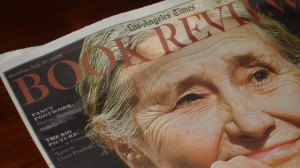
The responsibility of the humble book review to the public is great. Who will advocate great new books – works that transcend time and place, even as they describe a particular moment of history – and where will those reviews survive? The online model seems inevitable, even exciting in the potential to reach a far greater audience, but the question of how, or if, to make it pay remains. It has always been up to the ingenuity of businesses to devise the means of delivering a needed service, but without a reading, literate public, the services of review, criticism and thoughtful critique run the risk of having no art to examine. Those whose livelihoods depend upon it – the professional critics and reviewers – must fund a model that works in the new online context.
Still, the choice to value book reviews, and to find a way to support them, will rest in large part with the all-important reader. What in our culture gets lost when our great newspapers devote fewer column inches to books? If experienced book editors and fresh, web-savvy writers can work together to find a path forward–giving, in turn, book lovers motivation to raise their voices and increase their numbers–there may be a way to keep the book review alive for many years to come.
For Further Reading
The National Book Critics Circle (NBCC) is a 30-year-old nonprofit organization and community of more than 900 book reviewers. On their website, learn about the organization’s efforts to keep good literature–and quality criticism–alive (including a recent petition to save Book World); explore the excellent Critical Mass blog; read reviews of NBCC award finalists; and enjoy book news and features on a variety of topics.
In addition to the newspaper book reviews mentioned in this article–and all the great online reviews and lit blogs on our links page–these two book reviews (each published 4-5 times each year) are highly recommended by FWR; click on the covers to learn more:

The sister publication of Artforum, Bookforum offers new in-print and online editions five times each year.

